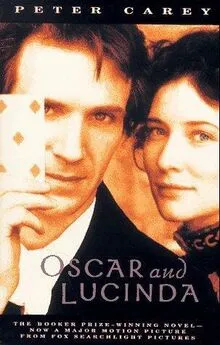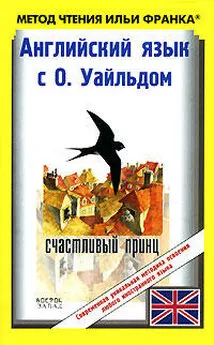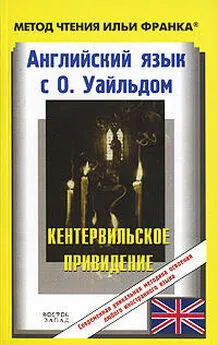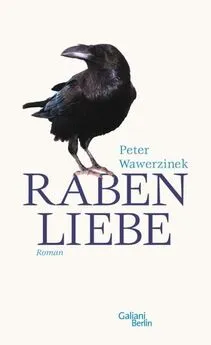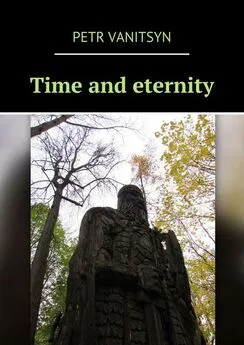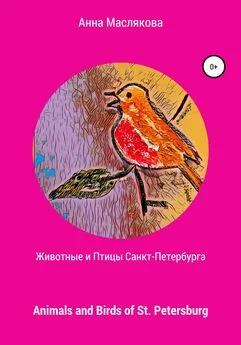Peter Carey - Oscar and Lucinda
- Название:Oscar and Lucinda
- Автор:
- Жанр:
- Издательство:Vintage Books
- Год:1988
- Город:New York
- ISBN:0-679-77750-4
- Рейтинг:
- Избранное:Добавить в избранное
-
Отзывы:
-
Ваша оценка:
Peter Carey - Oscar and Lucinda краткое содержание
The Booker Prize-winning novel-now a major motion picture from Fox Searchlight Pictures.
This sweeping, irrepressibly inventive novel, is a romance, but a romance of the sort that could only take place in nineteenth-century Australia. For only on that sprawling continent-a haven for misfits of both the animal and human kingdoms-could a nervous Anglican minister who gambles on the instructions of the Divine become allied with a teenaged heiress who buys a glassworks to help liberate her sex. And only the prodigious imagination of Peter Carey could implicate Oscar and Lucinda in a narrative of love and commerce, religion and colonialism, that culminates in a half-mad expedition to transport a glass church across the Outback.
Oscar and Lucinda - читать онлайн бесплатно полную версию (весь текст целиком)
Интервал:
Закладка:
It was a bright clear winter day-quite warm when you were sheltered from the wind-with small white clouds like old men's faces scudding across the sky.
Lucinda clambered up the crumbling riverbank and set off across the pasture to the back creek. She was short for her age-counter to her mother's early hopes and expectations. ("She has big feet!" Elizabeth had written triumphantly to Marian Evans; but nothing came of it.) Her steps were small and measured, fast, but not hurried. In truth she was nervous and excited. She had never been to the back creek by herself before and although no one had actually forbidden her, she knew she would be refused permission if she sought it.
The back creek had once been the main creek, until, in the big rains of 1821, it quite suddenly changed its course. So the Mitchell's Creek beside which the Leplastriers had built their hut was a new Mitchell's Creek and the trees that grew there were no more than thirty years old, whilst the back creek contained a richer, tangled growth of old gnarled trees where you could see the scars the blacks had made cutting barks for canoes and other implements. It was dark under the trees by the back creek and the water was stained with fallen leaves and moved slowly. Light came in motes from the ceiling of the canopy and there were small birds which lived on the ground and made alarming scuttling noise in the undergrowth right next to you. It was Blackfellow territory. Lucinda placed her doll on a springy khaki-green tussock, the glue-pot on some dust-dull river gravel. She then collected twigs and bark. She elected to build her little fire competently. She arranged two rocks on which the glue-pot would sit. She had wax matches in her pinny pocket. She lit the fire and watched it, squatting with her bent knees cloaked by the calico pinafore. She had a thoughtful, intelligent face-a high forehead, perfectly arched and clearly denned eyebrows, a mobile, slightly thin but prettily bowed upper lip, which betrayed-by its constant contraction and expansion-her enthusiasms, and a full lower lip, which would one day suggest sensuality but now, set against her large, heavy lidded green eyes, made the false promise of a wry, precocious humour. Her hair was reddish brown, more brown than red except here, by the creek, where a mote of light caught her and showed the red lights in a slightly frizzy halo.
She did not like her hair. It dragged and snagged on her mother's tortoiseshell hairbrush. Both her mother and father had straight black hair through which a comb could pass as if through water. She loved the way the strands of their hair lay so neatly, side by side, like pen lines. She had assumed-until her father had gently disabused herthat her own hair would change when she grew older, that the brush would one day cease to pull and the hairpins might at last have her as neat as she was meant to be.
Indeed the sole purpose of this illicit journey across the back paddock was all to do with her admiration for straight black hair. It was her plan to give a present to her doll, and while the glue-pot began to give off its comforting and distinctive aroma, one inextricably linked (like the smells of bran, pollard, tweed, apple peelings and ink) with her father, she took the doll in her lap and began to pull the hair from its head.
The hair was like her own-curly and frizzy to touch-but blonde, of course, where hers was frizzy brown. She pulled the hairs out in little tufts, grimacing and screwing up her eyes.
"Oh, do be still," she said. "If you squirm and slide you'll only make it worse." She placed the hair in an envelope on the back of which was written the name of John Bell, a Fellow of the Royal Society, and the man-by the by-responsible for Abel Leplastrier having such a large entry in the Encyclopaedia Britannica.
Soon the envelope was fat and spongy and the doll's head was not bald and shiny as she had imagined but sticky and brown with a substance a little like a hessian bag… 65
Oscar and Lucinda
"There," she said. "You see. it wasn't so bad."
But she felt a little frightened, not only of what she had done, but of where she was doing it. She looked around her, peering into the deep shady tangle of bush.
"I like the blacks," she told the doll loudly, "I like them better than the Mayor of Parramatta." But she had lost some of her earlier cornposure and when she reached for her other envelope-the one in which she had the hair her father had trimmed from the Percheron's black tail-her hands grabbed and her fingers pecked and, quite suddenly, nothing would go right. The glue ran down the doll's face, across her wide blue eyes. She used the shawl to wipe it clean, but the glue would not come off and then she saw she had made a nasty brown stain. She tried to wash this in the creek.
As for the hair-she had seen, in her mind's eye, how it would fall. She had seen it clearly, often, particularly after she had said her prayers and was drifting into sleep. But now the hair did not behave as she had imagined. It lay flat and sticky, matted together. She laid the doll down flat on the gravel bed and thought how she should now proceed. She rubbed her neck and forehead and left brown marks there. Then she coated the doll with more glue and this time she pushed the hair on in handfuls. What fell loose she pushed on again. It did not look how she had imagined, and although a part of her was alarmed, another part was thrilled by the great change she had wrought in Dolly who was-as if by magic-a different person, a native of a land where maps were not yet drawn. Her father would know which one, and if did not, then, why, he would make believe.
She was not prepared for the upset she created. There was no bread and butter when she brought her doll back into the hut in the late afternoon. Indeed, finally, there would be no supper. Dreadful things began to happen around her. Her mother slapped her leg. She had done this once before. Her mother had passions; she recovered from them quickly. But her father had no passions, did not shiver and shake. He was steady and even and never fussed, even when he lost the mail from Home somewhere in Parramatta. Her father saw the doll. She held it up to him. He drew himself up, he opened his mouth, he shuddered, he threw their best serving dish across the room where it nearly broke a burning lantern. Lucinda held her doll up in the air. Her mother threw a frying pan through the open doorway. She threw it so hard it clattered down the boulders on the creek. These missiles were not directed at her, but the air was filled with a violence whose roots she
66
Lucinda
would only glimpse years later when she lost her fortune to my greatgrandmother and was made poor overnight. Then she wondered how much the doll had cost.
"Why?" they asked her. "Why?"
And all she could say, through her tears, was that she wanted her Dolly to be neat. This was not an event one would easily forget, and Lucinda did not. And yet, paradoxically, when she came, as a young adult, to think about her own neatness, a habit she was always at war with herself about (suggesting as it did a great construction, a lack of generosity) she somehow failed to realize that it must have been with her from a very young age. She did not remember how great a virtue neatness had been held to be in her early childhood. This early childhood was always "quite normal" in her recollection. She imagined that her neatness was something she had
"caught" from her mother after her father's death, for then Elizabeth, left alone to farm, became like a caricature of her former self and would demand neatness in the most ridiculous degree. It was-as we have seen-not so; although her confusion of memory may be explained by the curious coincidence that the death of her papa also involved hair, and when she thought about the death she would always see a sticky black mess of hair like the one she had made herself at the back creek so many years before.
On the Saturday before Palm Sunday in 1852, her papa was thrown off his horse in Church Street, Parramatta. He cracked his crown and was dead almost immediately. Mr Chas Ahearn brought the body out to Mitchell's Creek in a wagon borrowed from Savage the grocer. He had wrapped a gaudy checked blanket around her papa, tucked it in tight around the sides and it was when this was undone that Lucinda, clinging to her silent mother as someone might clutch hold of a tossing log in a flooding river, saw the hair which would now grow for ever-matted, sticky, suffocatingin the gloomy undergrowth of her nightmares. It was only after this, so Lucinda remembered, that they suffered the disease of neatness. Elizabeth Leplastrier believed, as many still believe today, that you can tell everything you need to know about a farmer's skills by the condition of his sheds and fences, and whilst this may be true enough in a way, it became, for Elizabeth, such a tenet of faith that fences and sheds were attended to in preference to sheep and wheat and, on one occasion that was soon notorious in the district, amongst
67
Oscar and Lucinda
Protestants and Catholics alike, Mrs Leplastrier chopped down a Bartlett pear, a ten-year-old tree, healthy and fruitful in every respect, because she could no longer abide it standing out of line.
These small madnesses were not much beyond what one might term extremes of character, and although they had an effect on Lucinda, it was not exactly the one she imagined. It was not that she "caught" them, but rather that she came to feel herself inhabiting a cage constructed by her mother's opinions and habits, one she could not break free from. She longed to stretch and fracture whatever it was that held her in so neatly, and when one considers the personality of the young woman she became, it is easy to see the push and pull of these unresolved desires. There was, in Lucinda Leplastrier, she who became known as the "Glass Lady," a sense of containment, of order, a "clean starched stillness." But the stillness was coiled and held flat. Like a rod of ebony rubbed with cat's fur, she was charged with static electricity. Elizabeth
Oh, you are a witch, she thought, a wicked, loveless witch. God save you, Elizabeth Leplastrier told herself, God save your wretched soul.
She bit the inside of her cheek, bit it good and hard so that she tasted blood inside her mouth.
"Clear the table," she told Lucinda who was still perched on her cushioned chair at the kitchen table.
He is dead, Elizabeth thought. She took off her pinafore and folded it neatly as she watched the wagon come down the track, waited for it to slip and lurch at the bog-hole. It was Savage-thegrocer's cart and there were men, six of them, all clinging to it, all black angles of knees and elbows, like vultures. The sun had not gone yet, but the shadows were long and there was a chill in the air.
68
Elizabeth
Her husband's horse, that silly, nervous, prancing horse, trotted behind. Pandora she was called. Was ever a beast so aptly named?
You fool, she thought. It was a stupid horse to buy. I said nothing to you, God knows I should have. Why did I bite my tongue? I let you spend thirty pounds on a horse, a horse. And now you have gone and killed yourself.
1 will go Home, she thought. There is nothing for me to stay for. God save me. Do not think these things.
She rubbed her hands together. They were dry and horny. She thought: I am an essayist. I am an intellectual. I should not have hands like these.
Dear Lord Jesus, do not let him be dead. He has broken his arm, he has fractured a collar-bone. When she thought of broken bones she was not angry with him. She loved him. She would miss him.
But now the men and their wagon were at the gate of the home paddock and turtle-necked Chas Ahearn was fiddling at the gate and she could see ("Hurry, Lucinda, clear them away. Kettle, kettle-put the kettle on") that there was someone in the cart wrapped in a yellow and black checked blanket. She saw Ahearn look her way. The sun had gone. It was very cold. She shivered. She thought, I have wasted ten years in New South Wales to be rewarded by this moment. The silly man has widowed me. But when she saw Ahearn's face as it turned to herpouchy-eyed and turtle-slow-grief came on her. It was like a punch in the stomach. It caught her hard and winded her. She steadied herself against the daub-dusty wall, her mouth wide open, her hand patting her neat, braided hair. A great gust of grief blew down her open mouth, so much air she could barely stand. She was a sail. A great hard curve pushed inwards inside her guts. The wagon had Mr Savage's name in gold letters on its black slabsides. Someone had misspeUed
Читать дальшеИнтервал:
Закладка:
